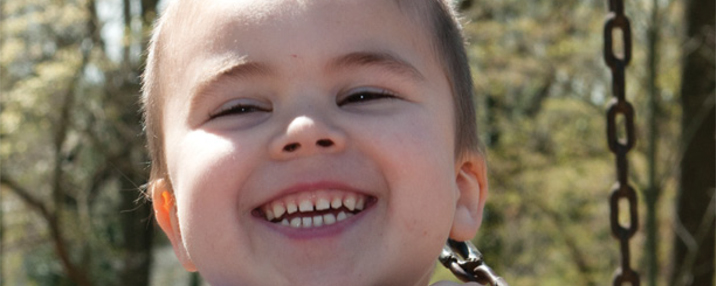
One in every 31 children has autism spectrum disorder (ASD). Delaware’s healthcare, education and adult services system faces numerous barriers to serving the growing number of children and adults with ASD, including lack of training for providers and families. CDS is committed to creating positive statewide systems changes through its autism initiatives. This work is guided by the Blueprint for Collective Action, our state’s strategic plan for supporting children and adults with ASD and their families.
Building Bridges
Autism spectrum disorder can be identified at increasingly younger ages, and early intervention is crucial for social, educational, and occupational success. Yet, Delaware systems of care can be inefficient and lack specific expertise in ASD. As a result, families struggle to navigate the complex systems of providers and services and Delaware children, on average, receive a diagnosis 2.5 years after parental concern.
These obstacles and others led to the creation of the Health Resource and Service Administration (HRSA)-funded “Building Bridges” project. Over the project’s three years, CDS and its partners focused on enhancing services for families of children under the age of three by: creating a more coordinated and supportive system of care for families; improving screening, evaluation, diagnosis and referral practices; and increasing families’ knowledge and confidence in navigating the early childhood system.
Delaware Network for Excellence in Autism (DNEA)
The dramatic rise in autism has created significant challenges among schools, social agencies, hospitals and clinics across the state. People with ASD and their families struggle to identify reliable, expert services across settings and are often left without adequate care and resources. The DNEA represents a statewide effort to build capacity across the state.
Led by CDS, in partnership with organizations such as Autism Delaware, the Network provides training to organizations and agencies, as well as to families, to ensure stronger support for people who could benefit from it. Training is offered in a variety of fields and targets community members, from paraprofessionals and administrators to business owners and others who desire it, to create a more welcoming environment that’s understanding of ASD.
Leadership Education in Neurodevelopmental Disabilities (LEND)
Delaware’s growing capacity for serving people with ASD and their families requires a new generation of leaders to sustain and guarantee its future success.
The Delaware Leadership Education in Neurodevelopmental Disabilities (LEND) training program is part of a national network of training programs for pre-professionals, professionals, self-advocates and family members that promotes interdisciplinary, culturally competent, family-centered care. A year-long intensive training program offers experiential learning opportunities for graduate students, postdoctoral fellows, family members and self-advocates, who work together to understand the most pressing challenges and develop innovative solutions. Trainees work with experts at the University of Delaware and Nemours/A.I. duPont Hospital for Children, and with self-advocates and families in their homes and natural environments, as they are tasked with considering how they will contribute as future leaders in their field.
Spectrum Scholars
Students with autism have incredible talent that too often goes unrecognized. Many autistic students have the ability to succeed in higher education, which can boost their career opportunities. Yet the adjustment to college life can be difficult, given rules for relating with peers and faculty, higher-level academic requirements, and expectations for individual decision-making and self-advocacy.
In collaboration with JPMorgan Chase & Co., UD has developed Spectrum Scholars, a program overseen by CDS that offers a system of supports and career development opportunities for select undergraduate students with autism. Spectrum Scholars receive coaching on how to develop study skills, campus connections and self-determination they will need to succeed in college and in their careers. UD faculty and staff, as well as community members, also receive training and consultation as we develop a campus community that increasingly appreciates neurodiversity.
